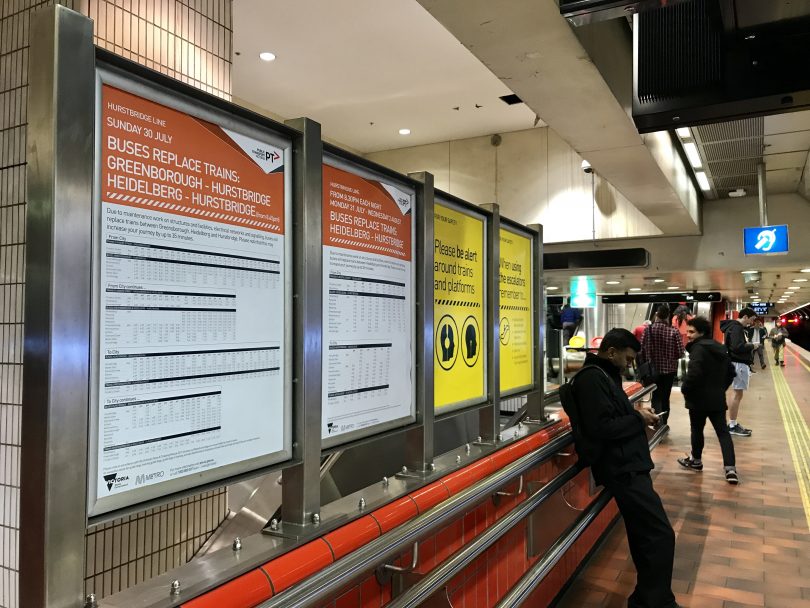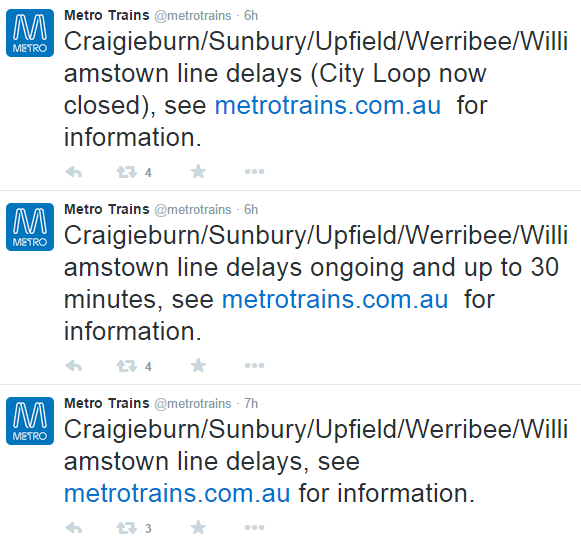Metro Trains have come under increased scrutiny in recent weeks as peak hour delays have continued.
The Level Crossing Removal Project has affected travellers, particularly on weekends, with bus replacement services heavily extending travel time.

Bus replacement services have been prevalent across Melbourne’s train lines in recent weeks. (Photo: Jarrod McAleese)
But the frequency of sudden interruptions has attracted the ire of workers and students who rely on public transport to access the CBD.
The July 13 meltdown of Melbourne’s entire train network caused by a computer fault suspended service on all of Melbourne’s 16 train lines for up to 90 minutes, trapping passengers on trains and leaving those occupying the rapidly overcrowding platforms seething.
The failure cost Metro Trains over $600,000 in compensation to be delivered to 175,000 passengers impacted.
Transport Minister Jacinta Allen sent a warning shot to Metro in regards to its poor performance.
“The government has already made its view crystal clear we expect a higher performance standard on the next round of contracts,” Allen explained on ABC Radio.
And the continued prevalence of delays and Metro’s grey guidelines surrounding punctuality in spite of the July “train-armageddon” has left long-suffering customers with little remaining patience and sympathy.
In a seven day block between 20th July and 26th July, Metro’s daily punctuality performance fluctuated between 84% and 97%, with the figure generally hovering around 90%.
However the term “punctual” and Metro’s definition of it has garnered discontent from commuters.
Trains that arrive less than 4 minutes and 59 seconds late are deemed to be on time.
But for travellers on the Cranbourne and Pakenham lines, trains that run 4 minutes late invariably skip the city loop, which in fact adds up to 15 minutes of travel time in order to reach popular destinations such as Parliament Station and Melbourne Central.
Cranbourne local Chris Edmonds delivered a scathing assessment of Metro’s punctuality standards and in particular the time frames accepted as being to schedule.
“It’s absolutely appalling that we are forced to accept this kind of mediocrity,” Edmonds said.
“Metro’s five minute punctuality boundary is used simply to cover up its inability to conduct a timely service.”

Metro’s punctuality guidelines have been criticised by commuters. Source: Public Transport Victoria
And while Metro’s train reliability rate – that is, the proportion of the timetable delivered – is higher, train cancellation routinely strikes in busy periods according to Edmonds.
“During peak hour for those leaving work on a Monday-Friday basis, around 5pm I can almost guarantee they will have a train cancelled each week,” he said.



